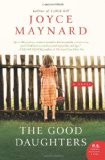Summary | Excerpt | Reading Guide | Reviews | Beyond the Book | Readalikes | Genres & Themes | Author Bio

Critics' Opinion:
Readers' Opinion:
First Published:
Sep 2010, 288 pages
Paperback:
Sep 2011, 304 pages
 Book Reviewed by:
Book Reviewed by:
BJ Nathan Hegedus
Buy This Book
Ruth
B e a n p o l e
My father told me I was a hurricane baby. This didn’t mean I was
born in the middle of one. July 4, 1950, the day of my birth, fell well
before hurricane season.
He meant I was conceived during a hurricane. Or in its aftermath.
“Stop that, Edwin,” my mother would say, if she overheard him saying this.
To my mother, Connie, anything to do with sex, or its consequences (namely,
my birth, or at least the idea of linking my birth to the sex act), was not a topic
for discussion.
But if she wasn’t around, he’d tell me about the storm, and how he’d been
called out to clear a fallen tree off the road, and how fierce the rain had been that
night, how wild the wind. “I didn’t get to France in the war like my brothers,”
he said, “but it felt like I was doing battle, fighting those hundred-mile-an-hour
gusts,” he told me. “And here’s the funny thing about it. Those times a person
feels most afraid for their life? Those are the times you know you’re alive.”
He told me how, in the cab of his truck, the water poured down so hard he
couldn’t see, and how fast his heart was pounding, plunging into the darkness,
and how it was, after—outside in the downpour, cutting the tree and moving
the heavy branches to the side of the road, his boots sinking into the mud and
drenched from rain, his arms shaking.
“The wind had a human sound to it,” he said, “like the moaning of a
woman.”
Later, thinking back on the way my father recounted the story, it occurred
to me that much of the language he used to describe the storm might have been
applied to the act of a couple making love. He made the sound of the wind for
me, then, and I pressed myself against his chest so he could wrap his big arms
around me. I shivered, just to think of how it must have been that night.
For some reason, my father liked to tell this story, though I—not my sisters,
not our mother—was his only audience. Well, that made sense perhaps. I
was his hurricane girl, he said. If there hadn’t been that storm, he liked to say, I
wouldn’t be here now.
It was nine months later almost to the day that I arrived, in the delivery
room of Bellersville Hospital, high noon on our nation’s birthday, right after the
end of the first haying season, and just when the strawberries had reached their
peak.
And here was the other part of the story, well known to me from a hundred
tellings: small as our town was—not even so much as a town, really; more like
a handful of farms with a school and a general store and a post office to keep
things ticking along—I was not the only baby born at Bellersville Hospital that
day. Not two hours after me, another baby girl came into the world. This would
be Dana Dickerson, and here my mother, if she was in earshot, joined in with
her own remarks.
“Your birthday sister,” she liked to say. “You two girls started out in the
world together. It only stands to reason we’d feel a connection.”
In fact, our families could hardly have been more different—the Dickersons
and the Planks. Starting with where we made our home, and how we got
there.
The farm where we lived had been in my father’s family since the sixteen
hundreds, thanks to a twenty-acre land parcel acquired in a card game by an
ancestor—an early settler come from England on one of the first boats—with
so many greats in front of his name I lost count, Reginald Plank. Since Reginald,
ten generations of Plank men had farmed that soil, each one augmenting
the original tract with the purchase of neighboring farms, as—one by one—
more fainthearted men gave up on the hard life of farming, while my forebears
endured.
My father was the oldest son of an oldest son. That’s how the land had been
passed down for all the generations. The farm now consisted of two hundred and
twenty acres, forty of them cultivated, mostly in corn and what my father called
kitchen crops that we sold, summers, at our farm stand, Plank’s Barn. Those and
his pride and joy, our strawberries.
Excerpted from The Good Daughters by Joyce Maynard. Copyright © 2010 by Joyce Maynard. Excerpted by permission of William Morrow. All rights reserved. No part of this excerpt may be reproduced or reprinted without permission in writing from the publisher.





The Flower Sisters
by Michelle Collins Anderson
From the new Fannie Flagg of the Ozarks, a richly-woven story of family, forgiveness, and reinvention.

The House on Biscayne Bay
by Chanel Cleeton
As death stalks a gothic mansion in Miami, the lives of two women intertwine as the past and present collide.

The Funeral Cryer by Wenyan Lu
Debut novelist Wenyan Lu brings us this witty yet profound story about one woman's midlife reawakening in contemporary rural China.
Your guide toexceptional books
BookBrowse seeks out and recommends the best in contemporary fiction and nonfiction—books that not only engage and entertain but also deepen our understanding of ourselves and the world around us.